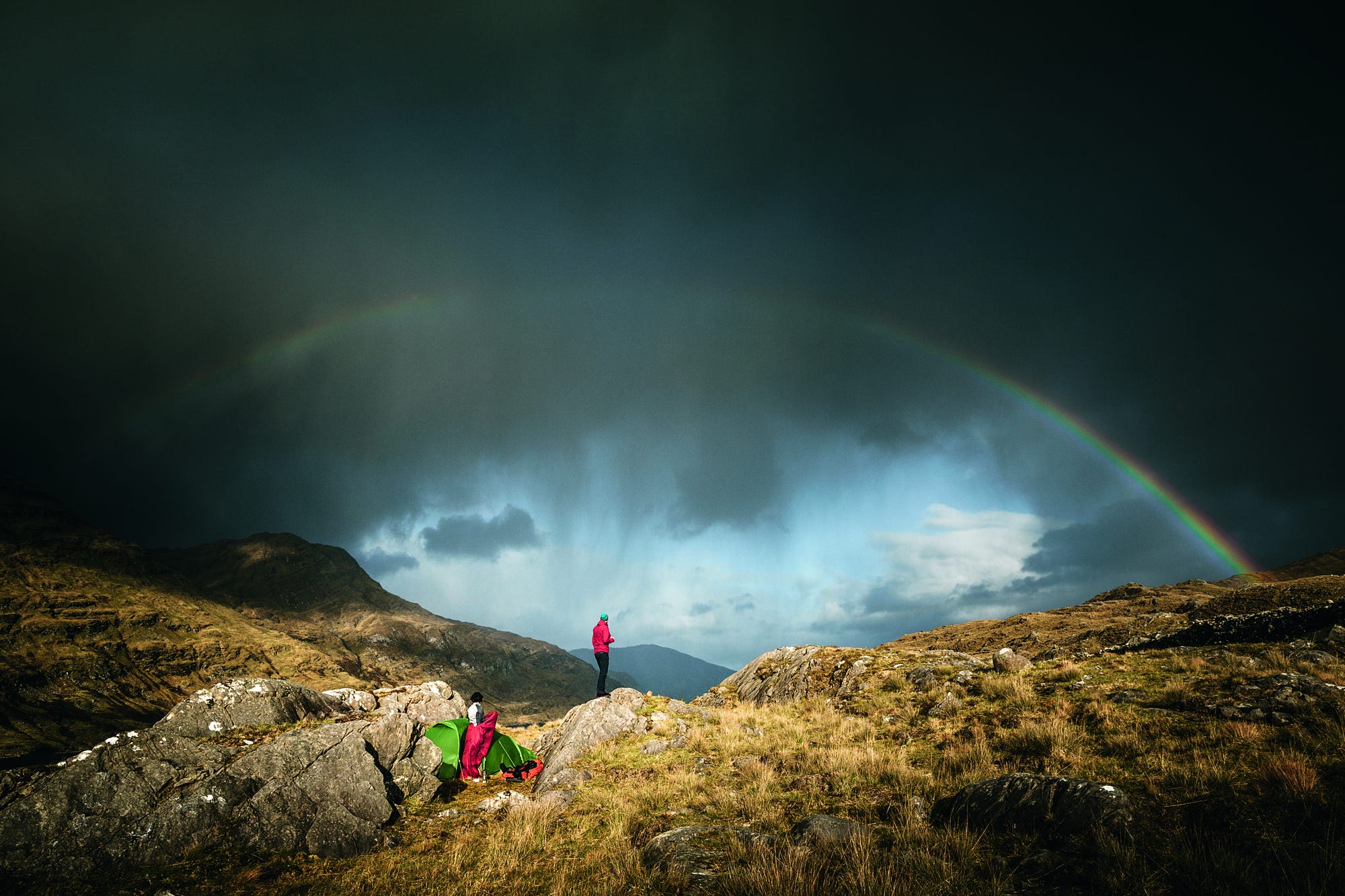The Thousand Star Hotel I - Wild camping and bivouacking in Germany, Austria, Switzerland
What could be better than a night under the stars? So just grab your sleeping bag and sleeping mat and head out into the woods? Unfortunately, it's not that easy. Unlike in the Scandinavian countries, there is no so-called "Everyman's Right" in Germany and the Alpine region that allows you to set up camp wherever you want. So am I not allowed to sleep outside at all? A guide.
The legal situation
Disclaimer: We at VAUDE are not lawyers. So this is not legal advice. However, we try to shed light on the jungle of different rules for you and give you a guide on how to decide on your own responsibility where you can sleep outside and how. All information without guarantee and subject to changes in the legal situation.
Camp or overnight stay?
First, there is a big difference between setting up camp (tent, tarp, kote, ...) and "camping" there, and just spending the night outside.
The good news for minimalists first. If you don't set up camp, the regulations are often less strict. A night in a bivy sack without a permanent camp is usually in the gray area of the so-called "right to enter" and is at least not expressly prohibited. An emergency bivouac, e.g. because one cannot safely continue in the mountains due to dense fog, is always allowed. Whether one may pitch a tent in this emergency situation, however, is unclear. At the very least, you quickly run the risk of someone assuming that you were planning to set up camp in this way in the first place, because who would ever carry a tent with them by chance?
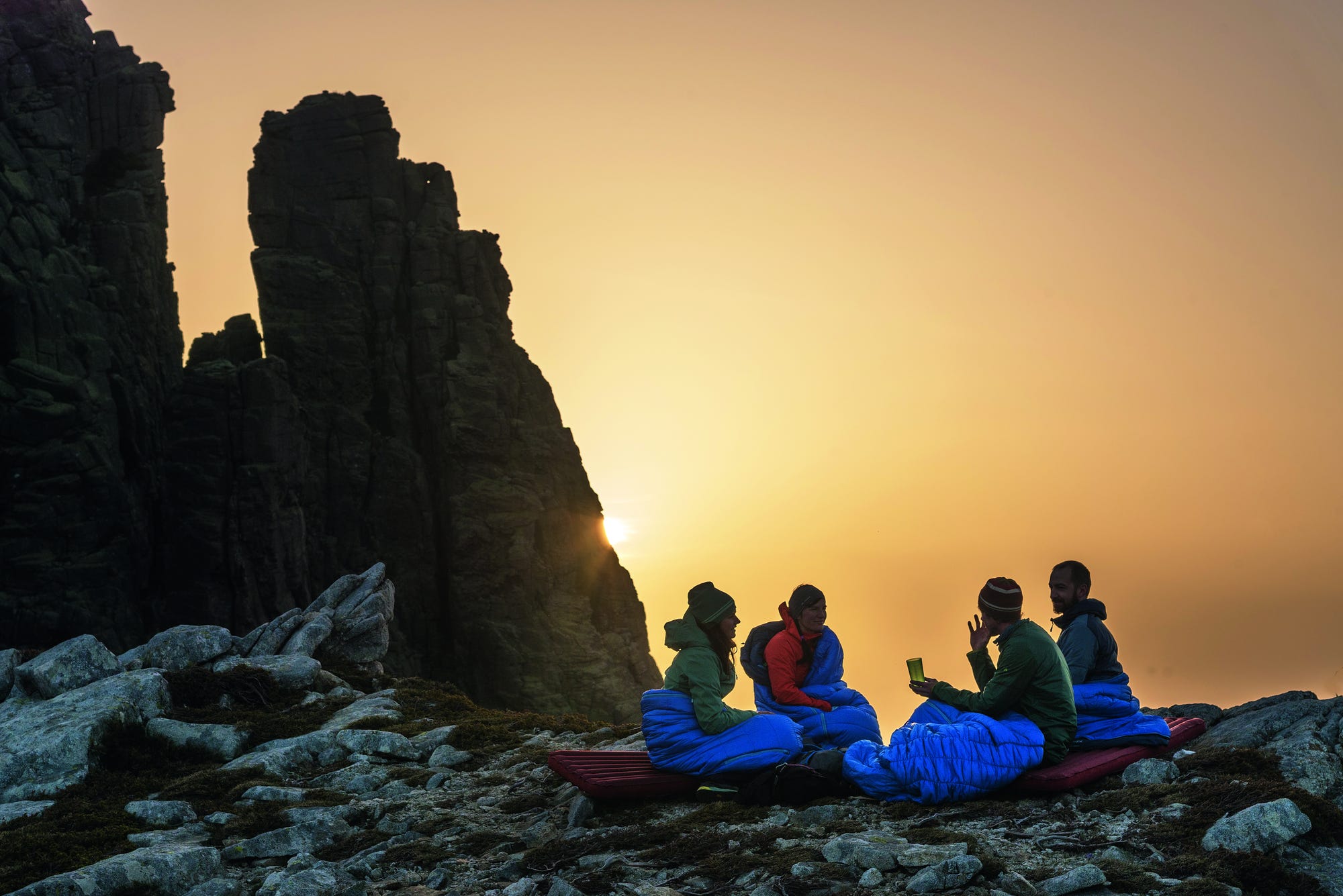

Camping without an emergency situation and in the forest, on the other hand, is the easiest. It is generally prohibited in Germany, Austria and Switzerland. If you want to camp outside the forest, it becomes more difficult. Austria and Switzerland know at least the possibility to camp above the tree line in the "alpine wasteland" legally, if it is not expressly forbidden by other reasons (see property & nature conservation). In Austria, however, there are different regulations for this from province to province. In Germany, camping in the so-called open countryside - i.e. everything outside of forests and cultivated and managed areas - also varies from state to state. From limited permission to non-regulation to explicit prohibition, everything is possible. However, I still have to answer the question of who owns the open terrain before I can calmly pitch my tent.
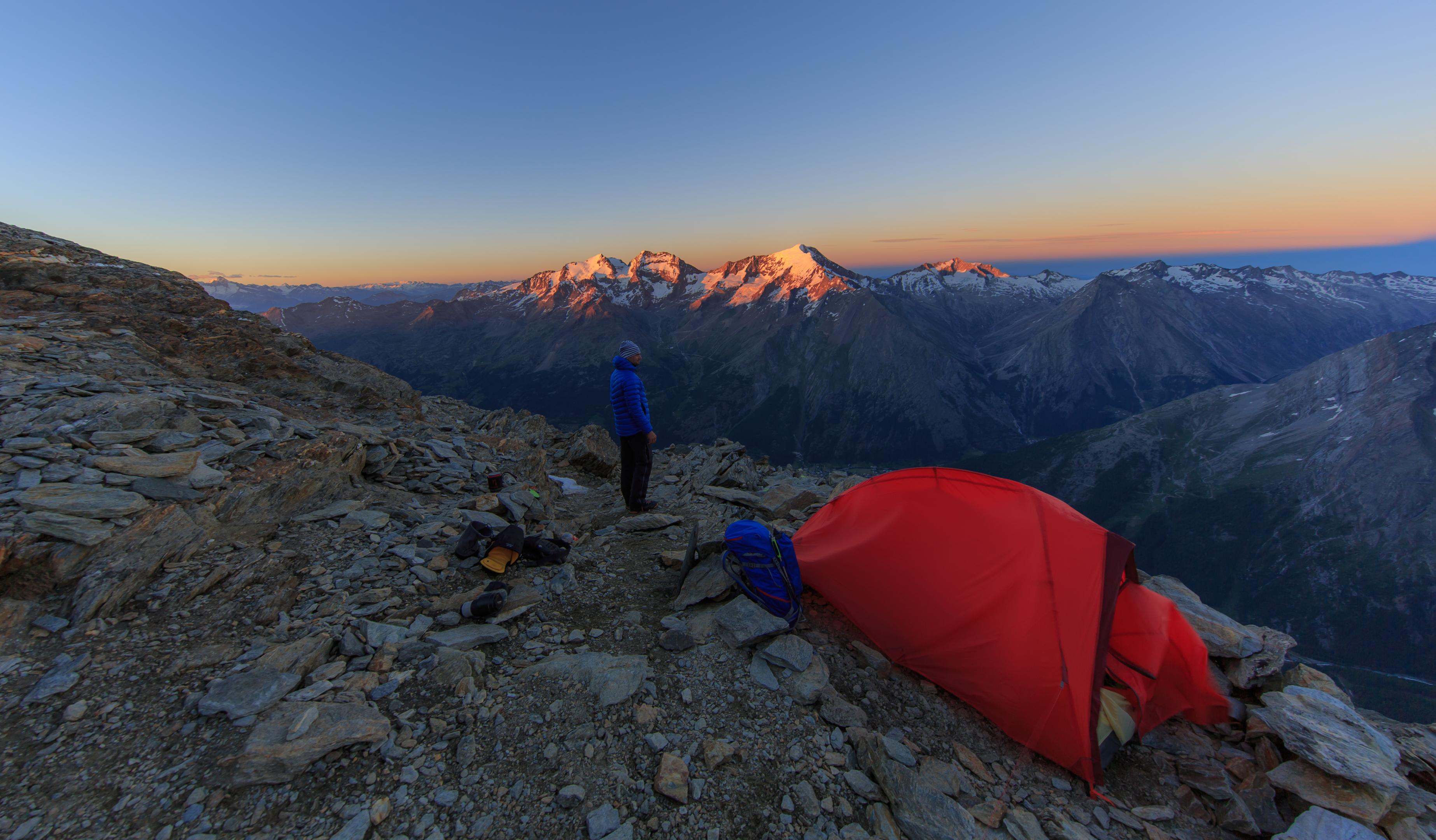

Private or public?
Here it is quite simple. You can't camp on private land without the landowner's permission. However, since it is usually impossible to tell who owns the land in the open countryside, this priority of ownership is tantamount to a de facto ban. When it comes to bivouacking, it is more difficult again, because the gray area between an extended nap under a pear tree in a meadow orchard and an overnight stay just there is at least present.
However, campers can also take advantage of the priority of private property. If the landowner agrees to a camp, everything is fine. Who asks thus with the farmer friendly whether he may camp on its meadow and him perhaps a small Obolus for the friendliness offers, can the prohibition fast a Schnippchen beat and in Germany, Austria and Switzerland.
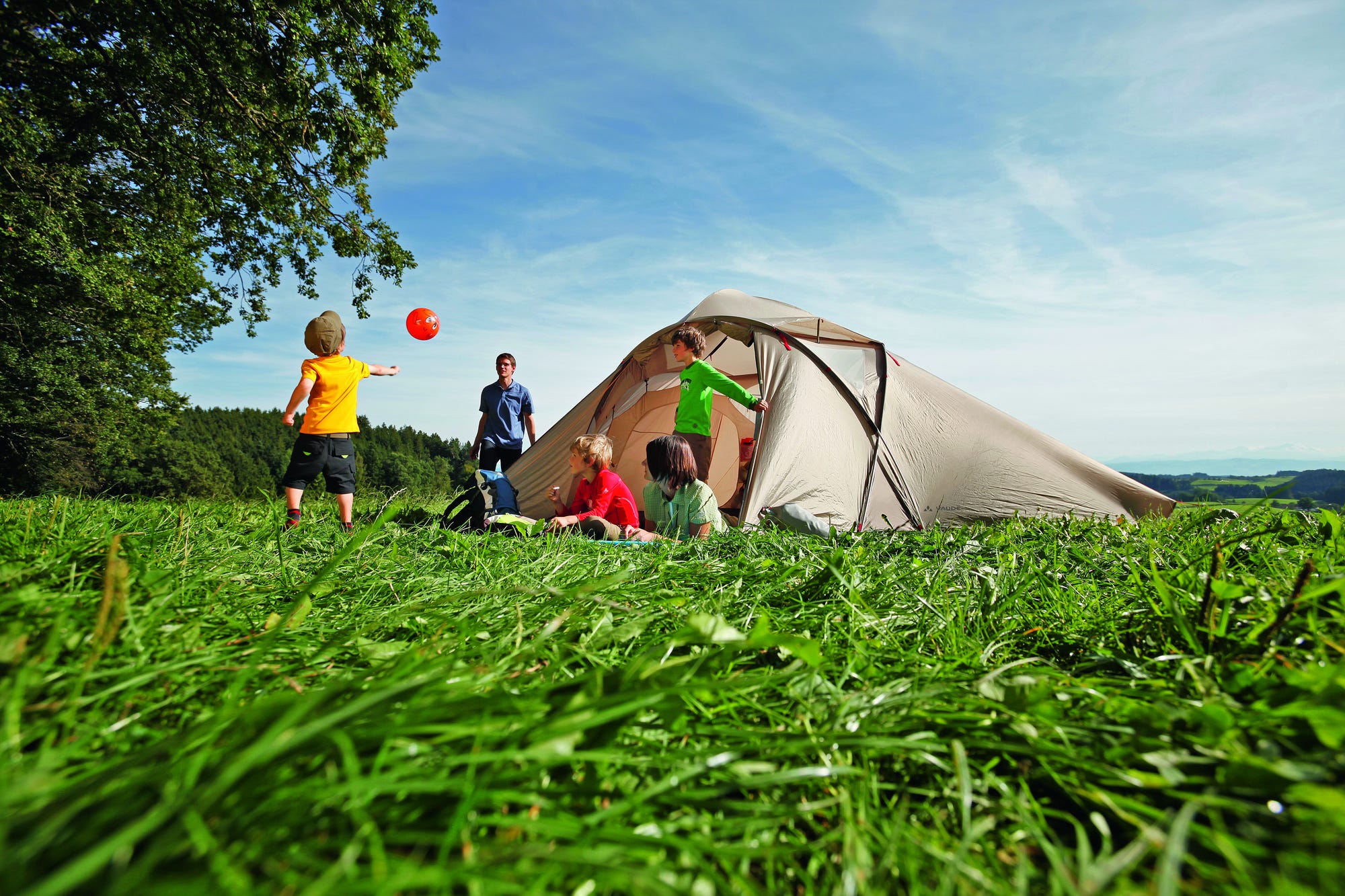

Nature conservation
Here, too, the legal situation is simple. In national parks and nature reserves, overnight camping is prohibited for good reasons. The pressure of use on natural areas in Central Europe can be very high and effective nature conservation can only be guaranteed if human intervention is kept to a minimum. Entering the area makes sense according to the motto "you only protect what you know", but many overnight stays in tents with all their negative side effects such as litter and excrement can quickly do harm. In case of violation, especially in Austria and Switzerland, there are severe penalties of up to 10,000 EUR in some cases.
An emergency bivouac remains permitted.
Nature reserves are usually well marked on maps and by signs and can hardly be overlooked.
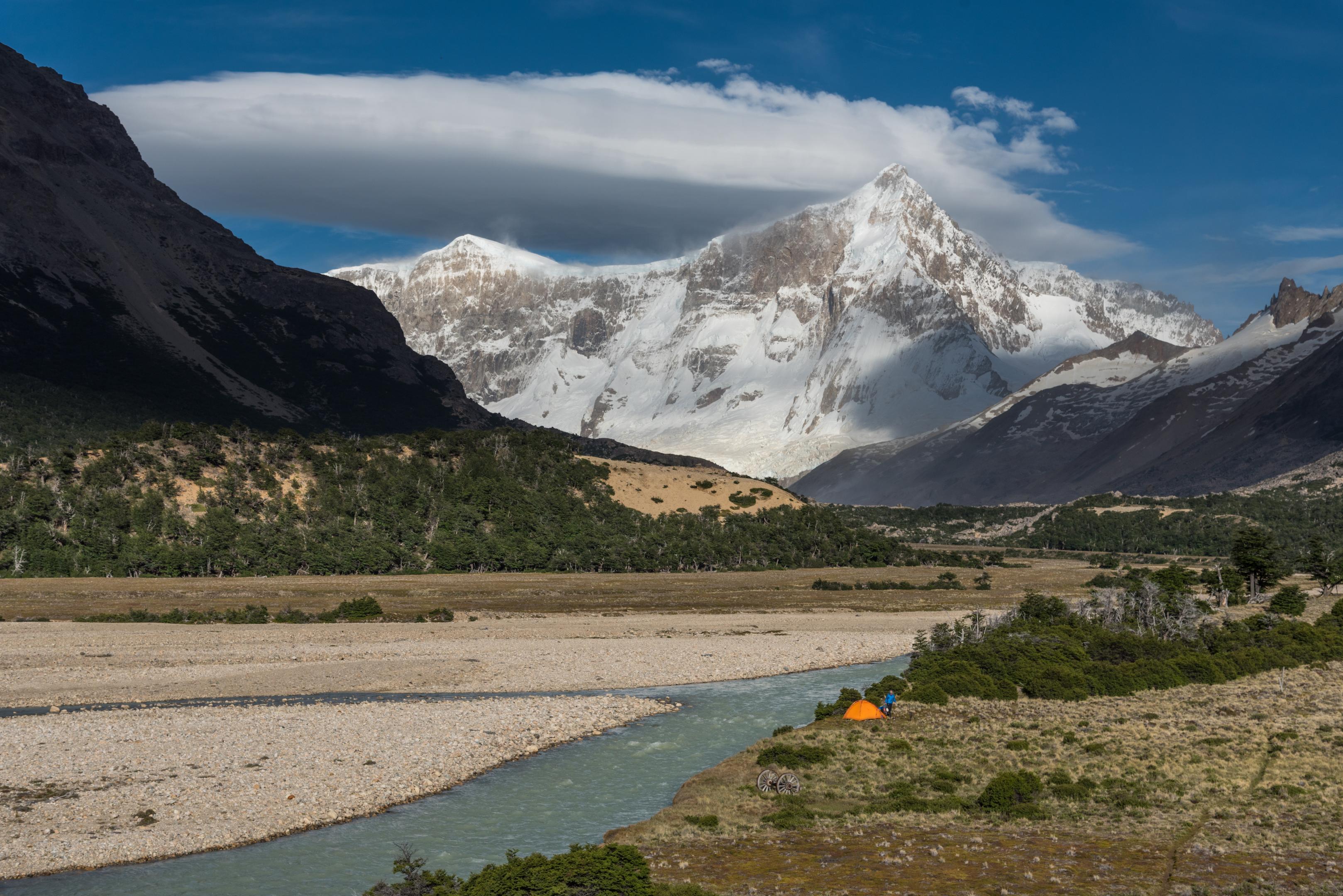

Legal alternatives
Fortunately, the number of camping sites close to nature or so-called nature campsites is steadily increasing. These are designated areas that are made available specifically for this purpose by private or public parties. Particularly in the Eifel pioneer work was made in the last years in addition, in Schleswig-Holstein and Saxonia there are possibilities (references at the end of the text).
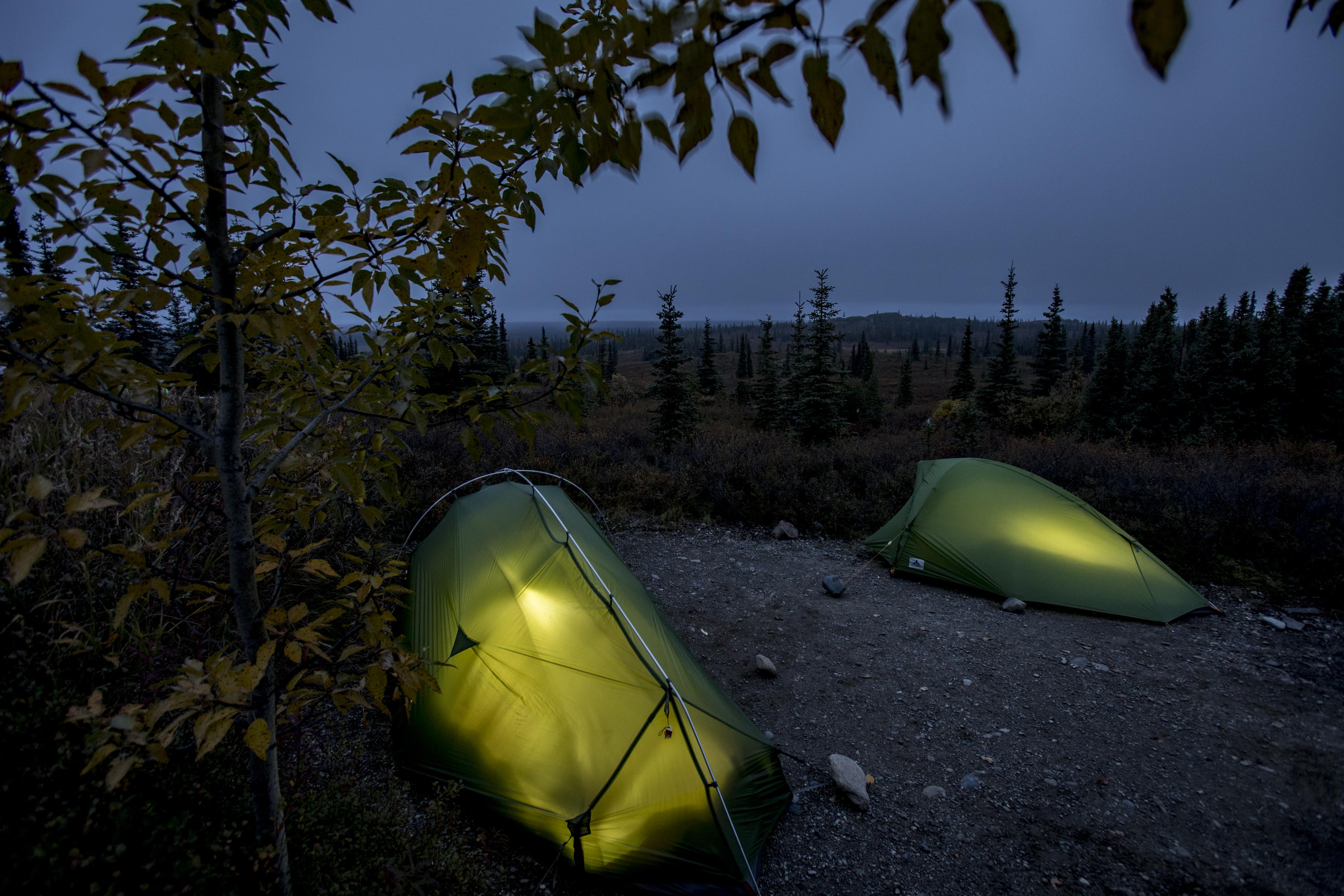

The right behavior in the gray area
Not everything that is not expressly forbidden is, by implication, also right. Regardless of the legal framework, you would do well to remember your responsibility for nature and the environment before setting up your camp or bivouac.
No open fire
Campfire romance or not. It is not only in the forest fire year 2018 that you should refrain from open fires in the great outdoors. Even if you don't start a fire, you leave behind traces in the form of scorched earth and compacted soil that you can't undo yourself. If you are determined not to let go of the campfire, it is best to look for one of the shelters with fireplaces or barbecue areas that are available in many forests. Live wood as fuel is absolutely taboo. For the sake of the environment, you should also avoid chemical fire accelerants and rather learn how to start a fire with natural means.
Use existing infrastructure
If you roll out your sleeping bag and sleeping mat in one of the mentioned shelters or attach a tarp to an unused forestry truck, you will usually be more tolerant of foresters, forest owners or area managers than if you lie down in the middle of a wildflower meadow. Stony underground is suitable already for nature protection reasons better for a bivouac or a tent camp under the star sky than vegetation, which possibly already the compression harms by the own body weight.
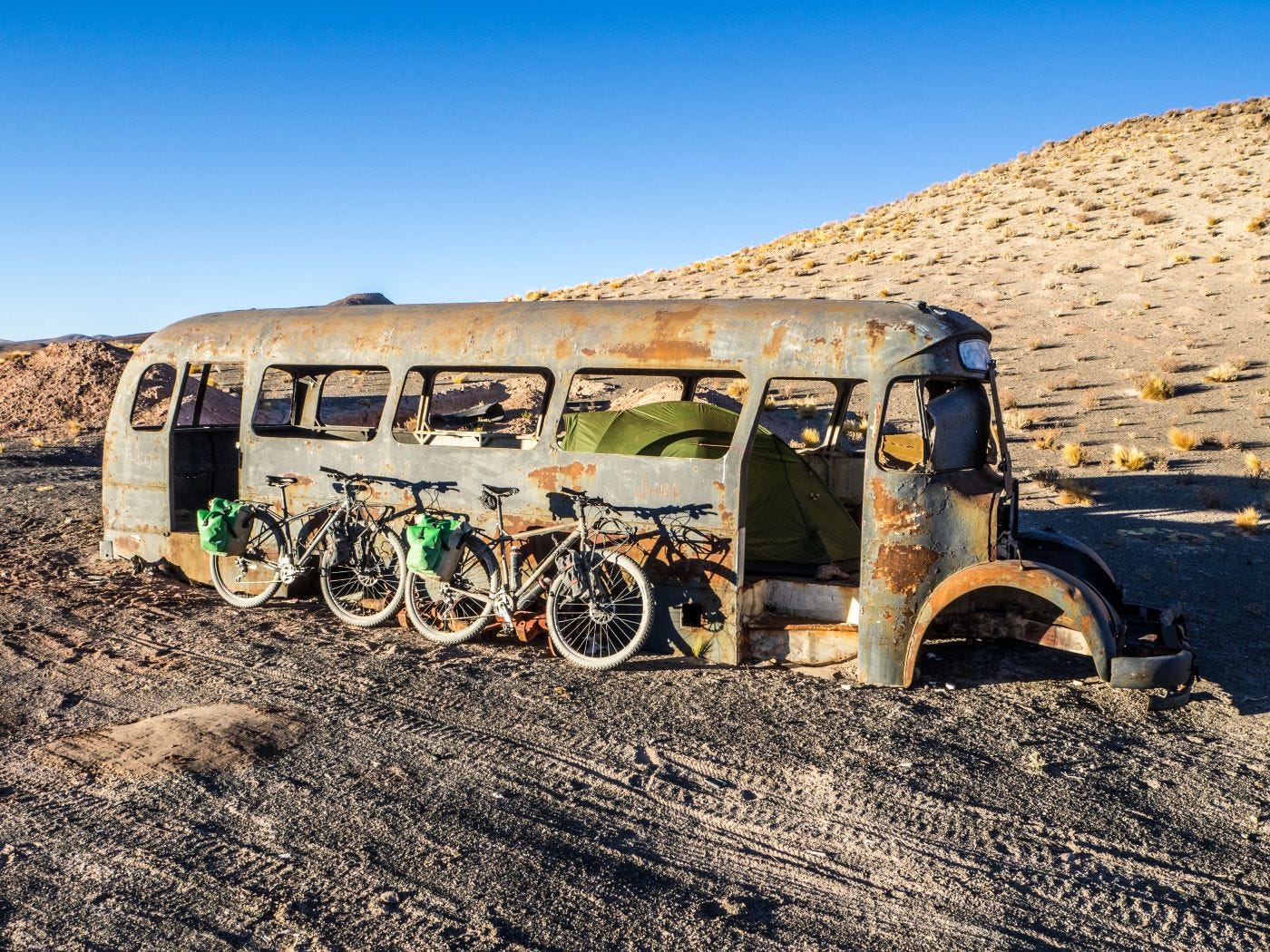

Take nothing but memories - leave nothing but footprints
This should be an iron rule for every stay in nature. You take your garbage and all other left behinds with you and you don't take any living material. As beautiful as the wildflower bouquet is as a souvenir, it stands even better on the alpine meadow than in the home flower vase. Small restriction: Pick fruit at the wayside without damaging the plants goes of course clearly. Especially important in autumn: Do not tear out mushrooms, but only cut off the fruiting body, otherwise the mycelium will be damaged and the mushroom may die.
How to shit in the woods?
There is even a whole book dedicated to this topic. Human waste always means nutrient input into otherwise barren soils. In addition, toilet paper decomposes very slowly in nature - contrary to what many people assume. In Central Europe with its dense infrastructure, one should hold out until one can use the toilet in the next village or mountain hut. If this is not possible, bury the feces and toilet paper at least thirty centimeters deep. A shovel belongs to the obligation equipment. Use as little toilet paper as possible, preferably single-ply recycled paper. Rock crevices or similar are not suitable. It is ideal to simply take the used toilet paper back with you and not dispose of it until you reach civilization - as is required in many US national parks, for example. Disgust is out of place here.
Huts
Camping near mountain huts is often frowned upon by their operators, even if the campground is not on private property and camping is also permitted by other rules. Just out of decency and friendliness, you should at least briefly let them know and perhaps even consider taking dinner in the cozy hut, so that the operators also get their money's worth.
Lies have short legs - honesty pays off
Anyone caught in the most beautiful sunset on a mountain meadow in a nature reserve with a hissing stove and steaming pasta will rightly have difficulty arguing that it is an emergency bivouac from acute exhaustion. Conversely, there is a good chance that the forester will simply allow you to pitch your tent in a suitable spot in the forest if you just ask him nicely.
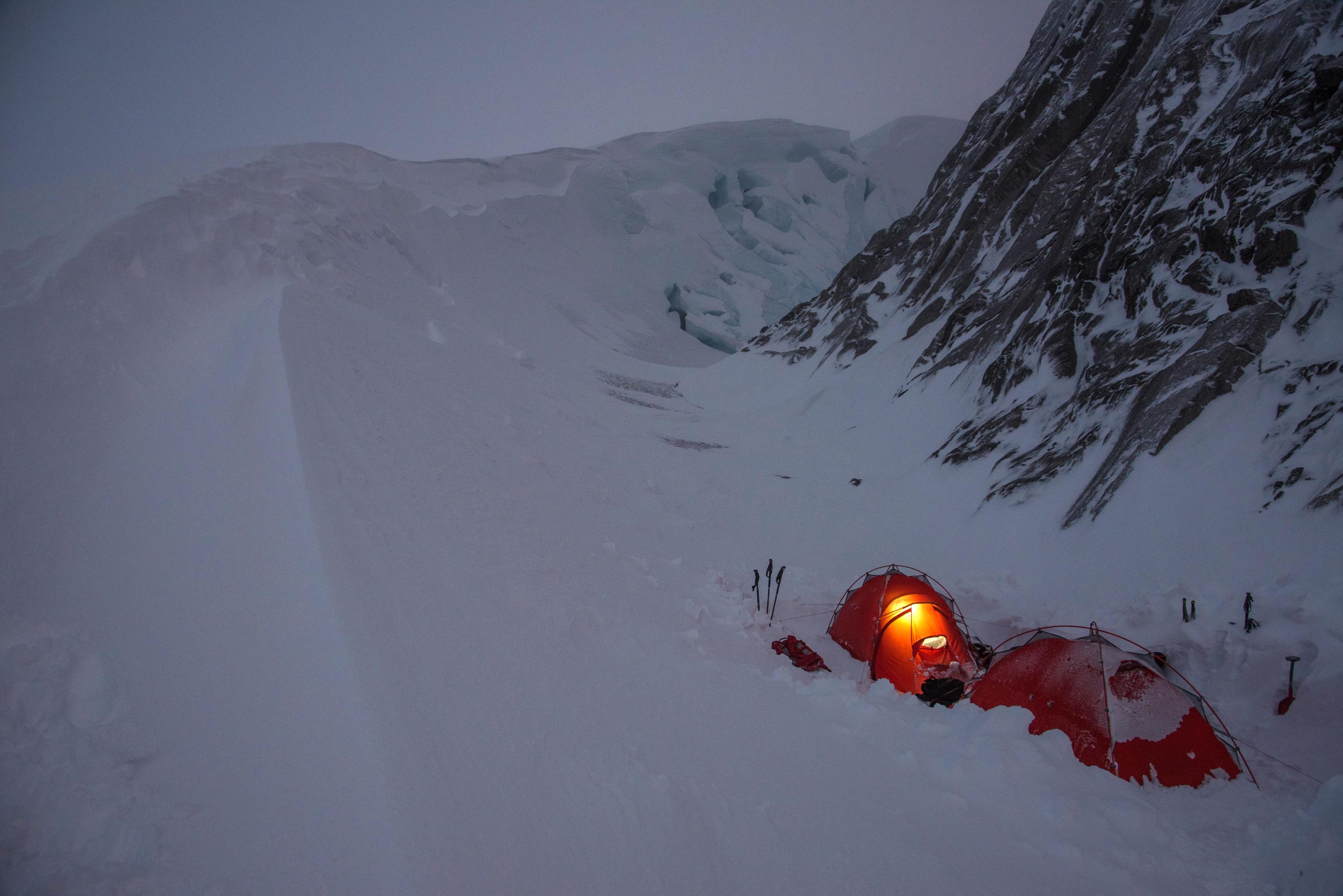

"The Thousand Star Hotel II - Wild Camping and Bivouacking in Europe" looks at the legal situation in other European countries.
Sources and for further reading
- An excellent summary of the legal situation in Germany on the Bergfreunde blog. (in german)
- Bergzeit (in german) explains the situation in Europe.
- Allgäuer freigeist Kristian Rath has his own thoughts and comes to a somewhat freer interpretation of the legal situation. (in german)
- Nature campsites in the Eifel, Schleswig-Holstein and Saxony
- The PES breaks down the situation in Austria by province ..
- ... and the SAC in Switzerland - of course without federal states ..
- ... also the DAV gives advice.
- An interactive map of all protected areas in Germany, filterable by area category at the Federal Agency for Nature Conservation ..
- ... the same for Switzerland..
- and Austria provides an overview here
- This map shows the current forest fire danger levels in Germany. Some federal states offer regional info, e.g. Thuringia
- 1Nitetent started in Germany and now also has first spots in Ireland, Poland, Belarus and even Guatemala. Also worth mentioning are the free offers at trekkingtrails.de and the paid ones at campspace.com, as well as mycabin.eu, which also has tent meadows on offer.
- Christo Förster asks in this episode of his "Free Out" podcast, "Will wild camping be released?"
